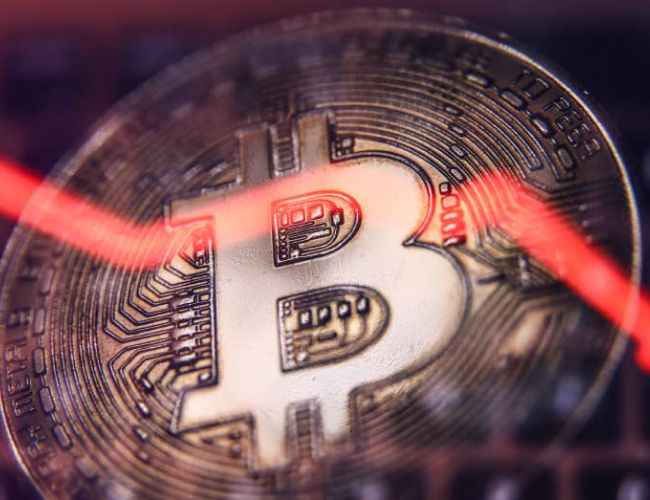Thailand’s Securities and Exchange Commission (SEC) has approved the launch of the nation’s first spot Bitcoin exchange-traded fund (ETF), One Asset Management (ONEAM) announced. This move positions ONEAM at the forefront of offering the “ONE Bitcoin ETF Fund of Funds Unhedged and not for Retail Investors” (ONE-BTCETFOF-UI), specifically tailored for wealthy and institutional investors.
According to local reports, the inaugural fund is slated for distribution from May 31 to June 6, bearing an investment risk level of eight. The fund will allocate investments across 11 leading global funds. These funds adhere to stringent international storage standards and have undergone rigorous reviews by regulatory bodies in the U.S. and Hong Kong.
Amidst this approval, MFC Asset Management remains in the queue, awaiting a similar endorsement from the Thai SEC for its Bitcoin ETF, also aimed at affluent investors. Pote Harinasuta, CEO of ONEAM, emphasized the strategic importance of digital assets in diversifying investment portfolios due to their low correlation with traditional financial assets.
Highlighting Bitcoin’s burgeoning acceptance and potential, Harinasuta noted the cryptocurrency’s impressive track record: “Over the past 11 years, Bitcoin has averaged a return of 124% per annum, despite its high volatility at 83%.” He advocates a moderate portfolio allocation to Bitcoin, suggesting that a 5% investment could yield an 8.90% annual return.
Furthermore, Harinasuta underscored the enhanced security features of investing in Bitcoin via ETFs compared to direct purchases on various platforms, which have historically faced challenges like data loss and theft. “ETFs offer investors the security of custodial storage, akin to standards used by institutional investors,” he added.
Thailand’s Stance on Crypto
Under the existing regulatory landscape, Thailand operators in the cryptocurrency sector must navigate through rigorous licensing and compliance protocols. Key provisions include stringent requirements for digital asset business operators, encompassing exchanges, brokers, dealers, and initial coin offerings (ICOs). For instance, all entities engaging in the sale of digital tokens to the public must secure licenses as “digital asset business operators” to ensure legal compliance and consumer protection.
The regulation extends specifically to ICOs, mandating that issuers must not only gain SEC approval but also register through a “Digital Portal Service Provider.” This structure is designed to fortify investor confidence by enforcing disclosure and operational standards akin to those in traditional securities offerings. Moreover, the classification of digital tokens into “investment” and “utility” categories further clarifies their legal treatment, exempting ready-to-use utility tokens from stringent ICO regulations.
Taxation policies have also been delineated, with the Revenue Code identifying profits from cryptocurrency as taxable income. Notably, transfers of digital tokens on regulated exchanges enjoy value-added tax (VAT) exemption, a policy extended until the end of 2023 for digital currency issued by the Bank of Thailand.
In alignment with global standards, the Anti-Money Laundering Act B.E. 2542 (1999) categorizes digital asset business operators as financial institutions, subjecting them to the same scrupulous reporting and customer due diligence requirements to curb illicit financial flows.
Thailand’s War on Un-registered Crypto-related Activities
Recently, Thailand’s Securities and Exchange Commission (SEC) took decisive steps against unregistered cryptocurrency service providers. According to Pornanong Busaratrakul, the Secretary General of the SEC, the agency is collaborating closely with the Ministry of Digital Economy and Society to identify and block unauthorized crypto platforms. This initiative aims to protect investors and ensure the stability of Thailand’s financial ecosystem. The SEC has advised users of these platforms to immediately withdraw their funds to avoid potential losses, underscoring the risks associated with non-compliant service providers.
The regulatory body also launched educational efforts, urging traders to consult the SEC’s list of licensed digital asset operators or use the “SEC Check First” application to verify the legitimacy of crypto service providers. Reports of suspicious activities can be directed to the SEC’s Complaint and Whistleblower Center for further action.
The tightening of crypto regulations in Thailand is part of a broader global shift towards stricter oversight of digital asset markets. In Europe, the Markets in Crypto-Assets Regulation is pushing for an assessment of the applicability of decentralized finance, with directives expected from the European Commission by year-end. Similarly, South Korea is enhancing regulations concerning virtual asset service providers (VASP), particularly focusing on the roles and responsibilities of executives within these entities.
Under the new proposals, the Financial Services Commission (FSC) in South Korea will be granted enhanced authority to oversee personnel matters, including the power to suspend VASP licenses during investigations involving executives.
Read the full article here

